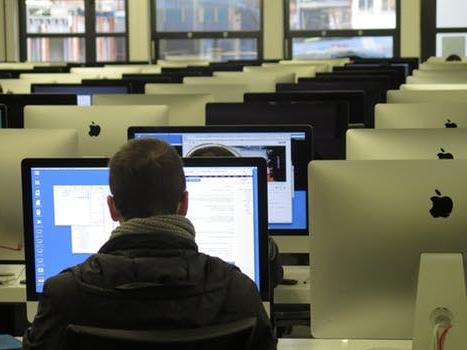Office of Legal Services
 The Office of Legal Services helps college and district personnel avoid and resolve conflict through means like mediation and negotiation.
The Office of Legal Services helps college and district personnel avoid and resolve conflict through means like mediation and negotiation.
This allows the Alamo Colleges District to develop its human capital and its capacity to serve students, employees and the community by conserving precious resources— both human and financial – that the public entrusts to the Alamo Colleges.
The office advises and represents the Chancellor and the Alamo Colleges Board of Trustees, Vice Chancellors, Presidents and their administrators, district directors, and others acting on the district's behalf.
What We Do
- advising and counseling on all matters having legal significance for the district
- overseeing the defense of claims and litigation
- reviewing and/or drafting legal documents like agreements and contracts
- helping administrators stay informed about legal compliance issues
- responding to inquiries and investigations (such as those of the EEOC, U. S. Department of Labor, EPA, or law enforcement agencies)
- answering legal questions posed by the Chancellor and college and district administrators as they manage the business affairs of this large, complex organization.
Together with outside counsel and the Training Manager in Employee Services, we also help administrators prevent and resolve employment-related legal claims.
NOTE: This website is for your general information and education only. What you read here is not legal advice; please do not rely on it as legal advice.
Please consult with the Office of Legal Services if you have questions about how laws, rules, codes and regulations apply to activities you are planning or in which you are involved. We look forward to working with you.
Legal Services
In 2005 the state legislature passed Chapter 176 of the Local Government Code requiring community colleges' boards of trustees and chancellors, as local government entities, to report conflicts of interest with vendors. The statute also requires vendors to disclose conflicts of interest with local government entity officers. In compliance with the statute Alamo Colleges officers and vendors publish conflict of interest reports on this site.
For questions regarding procedures, please contact Pat Meurin, Alamo Colleges Office of Legal Services, at 485-0060 or email her at pmeurin@253000xa.com.
Training Materials
Contracts PowerPoint Training Presentation
Contract Forms
Affiliation Agreement Department of Early Childhood and Family Studies
Affiliation Agreement ACCD College Health Care Form 2023
Affiliation Agreement ACCD College Non-Health Care Form 2023
Affiliation Agreement ACCD College Workplace Setting Form 2022
Affiliation Agreement ACCD Facility Health Care Form 2023
Affiliation Agreement ACCD Facility Non-Health Care Form 2023
Alamo Area Academies
Alcohol Service Approval Form
Amendment Form
Child Care Services Agreement Form
Dual Credit Private Charter School MOU
Education Service Agreement College Bound
Event Vendor Agreement Form
Facilities Rental Fee Exception Form
Facility Use Agreement Catered Form 2023
Facility Use Agreement Alcohol Served Form
Facility Use Agreement Month or Less - Governmental Form
Facility Use Agreement Month or Less Form
Facility Use Agreement Month or Less In-Kind Consideration Form
Facility Use Agreement Recurring Intermittent Use as Needed Form
Facility Use Agreement Recurring Months Form
Food Truck Agreement Form
Grant 2D Subcontract Federal Funds Only Agreement Form
Grant 2D Subcontract Federal Funds Though Site Agreement Form
Grant 2D Subcontract State Funds Only Funds
Grant Subaward Federal Funds only Agreement Form
Grant Subaward Federal Funds Through State Form
Grant Subaward State Funds only Form
Grant Subcontract After Subaward Federal Funds Only
Grant Sub Contract Agreement (Federal Funds Through State)
Grant Sub Contract Agreement (State)
Grant Subcontract Federal Funds Only Agreement Form
Lease Form
MOU form
Release and Indemnity General Participation
Release and Indemnity Trip
Release and Indemnity, Higher Risk
Services Agreement Form - Catered Alcohol
Services Agreement Form - Governmental
Services Agreement Form - Grant
Services Agreement Form - Low Risk
Services Agreement Form - Low Risk- Grant
Services Agreement Form
Services Agreement Form Professional - Grant
Services Agreement Form Professional
Family Educational Rights and Privacy Act (FERPA)
FERPA FAQ (PDF)
FERPA PowerPoint Training Presentation
FERPA Consent Forms
Northeast Lakeview College Form
Northwest Vista College Form
Palo Alto College Form
San Antonio College Form
St. Philip's College Form
For questions regarding document retention, please contact Marisa Saccio, Alamo Colleges, at 485-0592 or via e-mail at msaccio@253000xa.com.
Software Piracy FAQs
Software piracy is the unauthorized duplication, distribution or use of computer software -- for example, making more copies of software than the license allows, or installing software licensed for one computer onto multiple computers or a server.
Unauthorized copying of software is an act of copyright infringement and is subject to civil and criminal penalties. It's illegal whether you use the copied software yourself, give it away, or sell it. Also, aiding piracy by providing unauthorized access to software or to serial numbers used to register software can also be illegal.
College District employees and students shall comply with the provisions of the United States Copyright Law. Subject to certain specific exceptions (i.e., “fair use doctrine”), the owner of a copyright has the exclusive rights to reproduce, prepare derivative works, distribute copies, perform, or publicly display the copyrighted work, or to authorize such acts by others.
Employees and students shall be held accountable for violations of copyright laws. College District employees and students shall comply with “Agreement on Guidelines for Classroom Copying in Not-for-Profit Educational Institutions,” as cited in 17 U.S.C. 107. These guidelines shall be made available through appropriate publications distributed by the College District.
Unauthorized duplication, distribution or use of intellectual property, including computer software or sound recordings constitutes copyright infringement, is prohibited by this policy, and is illegal and subject to both civil and criminal penalties.
E.1.7 (Policy) Instructional Resources: Copyrighted Materials Responsible Department: Vice Chancellor for Academic Success, Legal Services Board Adoption: 5-19-09 Last Board Action: 5-19-09
Copyright is a form of protection provided by the laws of the United States to the authors of “original works of authorship,” including literary, dramatic, musical, artistic, and certain other intellectual works. This protection is available to both published and unpublished works. The Alamo Colleges adheres to the requirements of U.S. copyright law and also abides by licensing restrictions that govern the copying of software. Employees may not use copyrighted material without first obtaining written permission prior to duplication and distribution.
An exception to the exclusive rights enjoyed by copyright owners is the doctrine of fair use. The fair use of a copyrighted work for purposes of teaching, scholarship, or research is not an infringement of copyright. The following factors are considered in determining fair use:
- The purpose and character of the use, including whether the use is of a commercial nature or is for nonprofit educational purposes.
- The nature of the copyrighted work.
- The amount and importance of the portion used in relation to the copyrighted work as a whole.
- The effect of the use upon the potential market for or value of the copyrighted work. These criteria should be considered on a case-by-case basis, with some factors weighing heavier than others. Therefore, before you conclude that your use of another’s copyrighted work is “fair use,” you should consider these criteria carefully and seek assistance and guidance from the Vice Chancellor for Academic Success or the District Office of Legal Services.
"Fair Use" Laws Do Not Apply to Software
Colleges are subject to the same software copyright laws as corporations and individuals. Just as it is wrong to buy one textbook and copy the entire text for many students or faculty, it is wrong for a school to duplicate software without authority from the publisher. This means that:
- Departments may not use one set of disks to install software on several computers unless a multiple-user license is purchased. This includes placing software or installers on a networked server for many users to share.
- Faculty and staff may not install Alamo Colleges'-owned software on their home computers unless an individual copy is purchased by Alamo Colleges for that purpose. (In other words, they may not use the same disks to install software on their office and home computers.) This includes desktop and laptop computers obtained through the faculty/staff purchase program.
- Students and faculty cannot "borrow" or "rent" software for any purpose, including educational use. A licensed copy must be purchased for each individual. Nearly every software manufacturer offers heavily discounted pricing on software for educators and students in order to discourage software piracy in schools. Multiple licenses and "lab packs" are also heavily discounted for use by an entire class.
Illegal use of software puts Alamo Colleges at risk for fines, lawsuits, loss of access to educational software pricing, and represents unethical conduct that harms the entire academic community
When you buy software, you do not own the software, only the right to use it. If you purchase one copy, it is only legal for you to install and use one copy on one machine. Multiple installations from the same disk(s) are illegal unless you have purchased a multiple-user license.
Loading software on multiple computers using a single license is known as "soft lifting", which is contrary to the terms of a license agreement. This includes sharing software with friends and co-workers or installing software on home/laptop computers if not allowed by the license. A good rule of thumb is one software package per computer, unless the terms of the license agreement allow for multiple use of the program.
Otherwise, the law says that anyone who purchases a copy of software has the right to load that copy onto a single computer and to make another copy "for archival purposes only".
If you see someone copying software illegally or using pirated software, tell them to stop immediately. If they do not stop, please inform your supervisor to take the necessary actions.
The practice of illegally copying software or using pirated software exposes you and/or the Alamo Colleges to liability and compromises Alamo Colleges’ reputation in the business community.
The Alamo Community College District (also known as the “Alamo Colleges District”) name and the names of each one of the Alamo Colleges may not be used without written permission from the Alamo Colleges.
No one may use any of the names or logos of the Alamo Colleges in a manner that endorses any product or service, either explicitly or implicitly, without prior written permission from the Chancellor, the Vice Chancellor of Finance and Administration, or a College President at Alamo Colleges.
Contact Us |
Alamo Colleges Office of Legal Services |
Telephone: 210-485-0060 |



